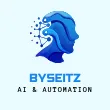Retail & Ecommerce Innovation Intelligence
Pricing
Pay per event
Retail & Ecommerce Innovation Intelligence
This actor is a powerful data-gathering tool that transforms raw news from top RSS feeds (focused on Retail, Ecommerce, and Digital Innovation) into structured, actionable intelligence. It uses DuckDuckGo News Search to gather real-time context and an LLM (OpenAI) to perform advanced analysis.
0.0 (0)
Pricing
Pay per event
1
1
1
Last modified
3 days ago
🛍️ Retail & Ecommerce Intelligence Pipeline
This actor is a powerful data-gathering tool that transforms raw news from top RSS feeds (focused on Retail, Ecommerce, and Digital Innovation) into structured, actionable intelligence. It uses DuckDuckGo News Search to gather real-time context and an LLM (OpenAI) to perform advanced analysis.
This actor is designed to run on a schedule, continuously gathering fresh intelligence. The structured data it produces is intended to be consumed by other systems, such as our flagship actor, Content Blueprint AI, which can use this stream of data to generate reports, market briefings, analysis, and more.
How to Use
You have two primary ways to use this actor:
- As a Data Source for Downstream Systems: This is the primary intended use. Run this actor on a schedule to build a dataset of fresh intelligence. Other tools, including the
Content Blueprint AIactor, can then be pointed to this actor's dataset to generate final content and reports. - As a Standalone Tool: Run this actor to generate high-quality, structured news intelligence. You are free to download the resulting dataset for your own trend tracking, competitor analysis, or to feed into other custom business workflows.
Features
- Comprehensive Source Aggregation: Gathers news from a curated list of top-tier Retail and Ecommerce feeds (e.g., Retail Dive, Digital Commerce 360, Ecommerce Times).
- Real-Time Grounding (DuckDuckGo): Uses the DuckDuckGo News Search to find fresh, corroborating snippets for each article, enriching the context before analysis. This ensures the summary is based on current, cross-validated information.
- Advanced AI Analysis: Leverages an LLM to analyze each article for trend/impact (e.g.,
Highly Disruptive,Growth Trend,Informational), categorize the topic (e.g.,Logistics/Supply Chain,Innovation/AI,Digital Marketing/SEO), and extract key entities. - Resilient Processing: The pipeline is designed to fall back to the original RSS summary if the DuckDuckGo search fails, ensuring the run completes without crashing.
- Duplicate Prevention: Intelligently tracks processed articles across runs to ensure you only process and pay for new information.
- Cost-Saving Test Mode: Includes a test mode to run the full workflow with dummy data, allowing for development and testing without incurring API costs.
Setup and Configuration
Before running the actor, you only need to provide an API key for the LLM service.
- OpenAI API Key:
- You will need an API key from your OpenAI account.
Add Keys to Apify Secrets
For security, add this key as a secret environment variable in your Apify Actor settings:
OPENAI_API_KEY: Your OpenAI API Key.
Cost of Usage 💸
Important Note: The costs listed below are for this actor only. Using this data with any other actor will incur its own separate API and platform costs.
Costs for This Actor
- Apify Platform Usage: Standard platform costs for running the actor, which depends on the duration of the run.
- DuckDuckGo Search: This service is free and is handled internally by the actor, replacing the need for paid search APIs. The actor performs one search query for every article it processes.
- OpenAI API: This is the primary cost. The actor makes two LLM calls for every article: one to summarize the DuckDuckGo Search snippets and another to perform the final analysis (sentiment, category, etc.).
Input
| Field | Type | Default | Description |
|---|---|---|---|
source | String | all | The news source category to use (e.g., 'all', 'retaildive', 'ecommercetimes'). |
customFeedUrl | String | null | A custom RSS feed URL to use if source is set to custom. |
maxArticles | Integer | 20 | The maximum number of new articles to fetch and process in a single run. |
region | String | wt-wt | Region to limit search results by (e.g., 'us-en' for US, 'wt-wt' for World). |
timeLimit | String | w | Limit search results by time (e.g., 'd' for day, 'w' for week). |
runTestMode | Boolean | false | Bypasses all external API calls for zero-cost testing. Do not enable in production. |
Output
The actor saves its results in the dataset. Each item is a structured JSON object with the following fields:
| Field | Type | Description |
|---|---|---|
source | String | The name of the news source (e.g., 'Retail Dive'). |
title | String | The original title of the news article. |
url | String | The URL of the original article. |
published | String | The publication date string from the RSS feed. |
summary | String | The AI-generated summary of the article. |
sentiment | String | The AI-analyzed business trend/impact (e.g., Highly Disruptive, Growth Trend). |
category | String | The AI-assigned category (e.g., Logistics/Supply Chain, Innovation/AI). |
key_entities | Array of Strings | A list of key entities like brands, platforms, technologies, or people. |


